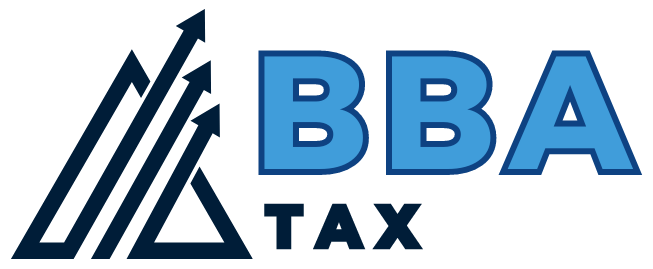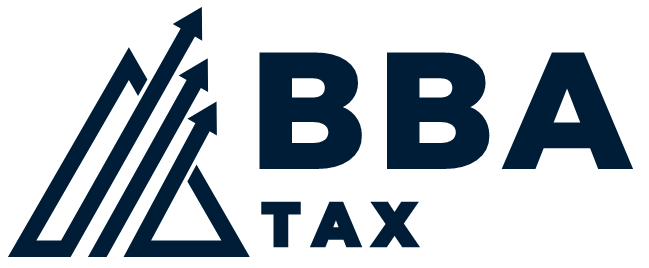Table of Contents
- Introduction
- Importance of Tax Deductions for Small Businesses
- Maximizing Your Tax Savings in Ottawa
- 1. Home Office Expenses
- What You Can Deduct
- How to Calculate the Deduction
- 2. Vehicle Expenses
- Deductible Expenses
- How to Track Vehicle Expenses
- 3. Capital Cost Allowance (CCA)
- Assets That Qualify for CCA
- How CCA Works
- 4. Salaries and Wages
- Payroll Deductions for Employers
- Other Payroll-Related Deductions
- 5. Marketing and Advertising Costs
- Deductible Marketing Expenses
- Tips for Maximizing Marketing Deductions
- 6. Professional Fees
- Types of Deductible Professional Fees
- How to Track Professional Service Expenses
- 7. Office Supplies
- Common Deductible Office Supplies
- Importance of Record-Keeping
- 8. Meals and Entertainment
- What Qualifies as a Deductible Expense
- CRA Guidelines for Meals and Entertainment
- 9. Travel Expenses
- Deductible Travel Costs
- Documenting Travel for Business Purposes
- 10. Insurance Premiums
- Types of Insurance You Can Deduct
- Importance of Business Insurance
- Conclusion
- Recap of Key Tax Deductions
- How BBA Tax Can Help You Maximize Savings
- Contact BBA Tax for Expert Tax Guidance
Introduction
Running a small business in Ottawa comes with many responsibilities, and managing taxes is one of the most important. For small business owners, knowing which tax deductions you qualify for can significantly reduce your tax bill and maximize your savings. Whether you’re a startup, a freelancer, or an established company, taking advantage of available tax deductions can help boost your bottom line. In this comprehensive guide, we’ll explore the top 10 tax deductions for small businesses in Ottawa to help you save more and keep your finances healthy.
At BBA Tax, we specialize in helping small businesses navigate the complexities of tax preparation, corporate tax filing, and financial management. Our experts understand the Canadian tax system inside out and are here to help you optimize your tax strategy.
1. Home Office Expenses
If you operate your business from home, you may be eligible for a variety of home office deductions. This deduction is especially beneficial for small business owners who don’t have the resources to lease office space.
What You Can Deduct:
- Utilities: A portion of your home’s utilities, such as electricity, heat, and water, can be deducted based on the space you use for business.
- Home Internet & Phone: The business percentage of your internet and phone costs can be claimed.
- Mortgage Interest or Rent: If you own your home, you can deduct a portion of the mortgage interest. If you rent, you can deduct a portion of the rent.
- Home Maintenance & Repairs: Any expenses related to maintaining or repairing the home office space can also be deducted.
How to Calculate the Deduction:
To calculate the percentage of your home office deduction, divide the square footage of your office space by the total square footage of your home. For example, if your home office takes up 10% of your home’s total area, you can deduct 10% of applicable expenses.
Note: The space must be used solely for business purposes and be your principal place of business.
2. Vehicle Expenses

If you use your personal vehicle for business purposes, you’re entitled to deduct a portion of vehicle-related expenses. Keeping track of your mileage and distinguishing between personal and business use is crucial to maximizing this deduction.
Deductible Expenses:
- Fuel: The cost of gas used for business trips.
- Maintenance & Repairs: Expenses like oil changes, tire replacement, and repairs related to business use.
- Insurance & Licensing: The business percentage of your vehicle’s insurance and registration costs.
- Leasing or Depreciation: If you lease your vehicle, you can deduct part of the leasing costs. If you own it, you can claim depreciation as a capital cost allowance (CCA).
How to Track Vehicle Expenses:
Keep a detailed logbook that records all business-related travel, including dates, destinations, and the purpose of each trip. By calculating the percentage of kilometers driven for business vs. personal use, you can accurately claim this deduction.
3. Capital Cost Allowance (CCA)
When you purchase significant business assets like machinery, office equipment, or furniture, you can’t deduct the full cost in the year you bought them. Instead, you can deduct a percentage of their cost each year through the Capital Cost Allowance (CCA).
Assets That Qualify for CCA:
- Office furniture and equipment
- Machinery and tools
- Computers and software
- Company vehicles
How CCA Works:
Each type of asset has a specific CCA rate, which dictates the percentage of the asset’s cost you can deduct annually. For instance, office furniture typically has a CCA rate of 20%, while computer equipment can be depreciated at 55%. The first year you claim CCA, you can only deduct half the rate.
Pro Tip: Consult with a tax expert at BBA Tax to ensure you’re applying the correct CCA rate and maximizing your deductions over time.
4. Salaries and Wages
If you employ staff, you can deduct the salaries and wages you pay them as a business expense. This includes not only the employees’ base wages but also benefits like Canada Pension Plan (CPP) contributions, Employment Insurance (EI), and any additional bonuses or commissions paid.
Other Payroll Deductions:
- Employer Health Tax (EHT): If your payroll exceeds a certain threshold, you may need to pay the Ontario Employer Health Tax. This is deductible.
- Workplace Safety and Insurance Board (WSIB) premiums.
- Group Benefits Plans: Contributions to employee health and dental plans are also deductible.
Keeping accurate payroll records is crucial, not only for tax deductions but also for compliance with employment regulations.
5. Marketing and Advertising Costs

Promoting your business is essential for growth, and the good news is that most marketing and advertising expenses are fully deductible. Whether you’re running online ads or printing flyers, these costs can be written off as business expenses.
Deductible Marketing Expenses:
- Online Advertising: Facebook ads, Google Ads, and other forms of digital marketing.
- Print Media: Business cards, brochures, and print ads.
- Website Costs: The costs of building and maintaining your business website, as well as SEO services, are deductible.
- Sponsorships & Events: If your business sponsors local events or contributes to community initiatives, these costs may be deducted as part of your marketing strategy.
Pro Tip: If your business advertises in the United States, ensure that you’re aware of the limitations on deductibility for foreign advertising.
6. Professional Fees
Small business owners often require the expertise of professionals to manage various aspects of their business. Whether you’re hiring an accountant to prepare your taxes or consulting with a lawyer for contract reviews, the fees you pay are fully deductible.
Deductible Professional Fees:
- Accounting & Tax Preparation: Fees paid to an accountant or tax preparer for business-related services.
- Legal Fees: Costs associated with drafting contracts, employee agreements, or resolving disputes.
- Consultant Fees: If you hire business consultants to improve operations or efficiency, these fees are deductible.
At BBA Tax, we help small businesses maximize this deduction by offering comprehensive accounting and tax services.
7. Office Supplies
The everyday items that you use to keep your business running smoothly can also be deducted as office supplies. These are typically items that are used up within a year and are necessary for the operation of your business.
Common Deductible Office Supplies:
- Stationery: Pens, paper, notepads, and other supplies.
- Postage & Courier Services: Any costs related to mailing business correspondence or packages.
- Software Subscriptions: Monthly fees for business tools like Microsoft Office, Adobe, or cloud storage services.
Tracking these smaller expenses throughout the year ensures that you claim all eligible deductions come tax season.
8. Meals and Entertainment

Taking clients out for meals or hosting business meetings in restaurants can be deducted, but there are some limitations. Currently, the Canada Revenue Agency (CRA) allows businesses to deduct 50% of the cost of meals and entertainment that are directly related to business activities.
Deductible Expenses:
- Client Meals: Taking clients or potential customers out for meals.
- Employee Meals: Meals provided during business meetings or while traveling for work.
- Entertainment: Tickets to sporting events or shows purchased for client meetings.
To qualify, you must keep receipts and detailed records showing the purpose of the meeting and the individuals present.
9. Travel Expenses
If your business requires you to travel for work, many of these expenses can be written off. Travel expenses can include transportation, accommodation, and meals when you’re away on business.
Deductible Travel Costs:
- Flights, Trains, and Car Rentals: The cost of getting to and from business meetings or conferences.
- Hotel Stays: Accommodation expenses while traveling for business.
- Travel Meals: Similar to meals and entertainment, 50% of meals during business trips can be deducted.
Be sure to keep all receipts and logs for travel expenses, as these deductions are often closely scrutinized by the CRA.
10. Insurance Premiums
Business insurance is a must-have to protect your assets, employees, and overall operations. Premiums for various types of business insurance can be fully deducted.
Types of Deductible Insurance:
- Property Insurance: Coverage for business premises or home offices.
- Liability Insurance: Protecting your business against legal claims.
- Vehicle Insurance: If you have a business vehicle, insurance costs are deductible.
It’s essential to have the right coverage in place to safeguard your business, and deducting the cost of these premiums can help offset the expense.
Conclusion
Understanding and utilizing these top tax deductions can significantly lower your tax liability and improve your business’s financial health. At BBA Tax, we specialize in helping small businesses in Ottawa maximize their tax deductions and ensure compliance with CRA regulations. By working with our team of experienced accountants, you’ll have peace of mind knowing your finances are in good hands.
If you’re ready to take control of your business’s tax strategy, contact BBA Tax today for a consultation. Our experts are here to help you navigate the complexities of tax planning and save your business money.



